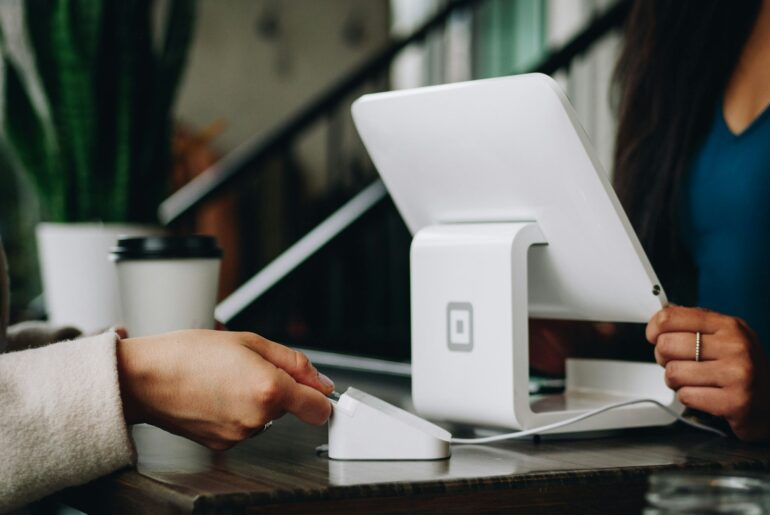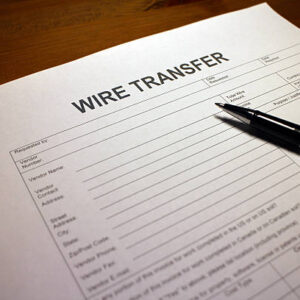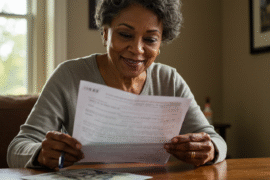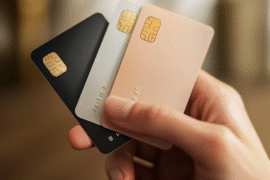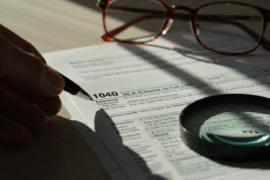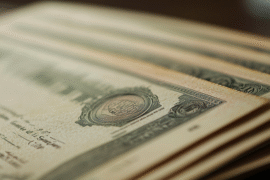This article may contain references to products or services from one or more of our advertisers or partners. We may receive compensation when you click on links to those products or services. Nonetheless, our opinions are our own.
- Key Highlights
- Introduction
- Understanding Personal Checks and Cashier’s Checks
- A Beginner’s Guide to Choosing Between Personal Checks and Cashier’s Checks
- Practical Scenarios for Using Personal Checks vs. Cashier’s Checks
- Conclusion
-
Frequently Asked Questions
- What are the major differences in fees between personal checks and cashier’s checks?
- What are the differences between a personal check and a cashier’s check?
- When should I use a personal check for payment?
- When is it advisable to use a cashier’s check instead of a personal check?
- Are there any security considerations when using either a personal check or a cashier’s check?
- Recommended Reads
Key Highlights
- Cashier’s checks and personal checks are both forms of payment, but they offer different levels of security and convenience.
- Personal checks are drawn directly against your checking account, while cashier’s checks are guaranteed by the issuing bank or credit union.
- Cashier’s checks are generally required for large purchases, such as buying a car or making a down payment on a house, as they provide a greater sense of security to the recipient.
- Personal checks are suitable for everyday transactions, such as paying bills or giving gifts, especially when you have an established relationship with the recipient.
- Understanding the pros and cons of each payment method can help you make informed financial decisions.
Introduction
In today’s world, there are many ways to pay for things. It is important to know the differences among these options to make good financial decisions. When using checks, you often hear about two types: personal checks and cashier’s checks. Both of these help to move money, but they meet different needs. Picking the right one will depend on your situation and how safe you want to feel. Let’s look closely at these payment methods to help you choose the best option for your next transaction.
Understanding Personal Checks and Cashier’s Checks
The Basics of Personal Checks
A personal check is a common way to pay using your personal checking account. When you write a personal check, you tell your bank to take a certain amount of money from your account and give it to the person named on the check.
A key thing to think about with personal checks is the chance of insufficient funds. If you write a check for more than what you have in your account, the check may bounce. This can lead to fees and possible legal issues. To avoid problems, always check your available balance and consider setting up overdraft protection with your bank.
How Cashier’s Checks Stand Apart
Unlike personal checks, which take money from your checking account, cashier’s checks use money from a financial institution. This key difference reduces the risk of insufficient funds. Because of this, cashier’s checks are safer for recipients, especially for large payments.
When requesting a cashier’s check, you must furnish the financial institution with the recipient’s name and the desired amount. The institution then takes that amount from your account, usually for a small fee, and issues a check backed by its own funds. This ensures the payee that the money is guaranteed.
A Beginner’s Guide to Choosing Between Personal Checks and Cashier’s Checks
Step 1: Assessing Your Payment Situation
Choosing between a personal check and a cashier’s check depends on your specific situation. Large purchases, such as real estate transactions or buying a vehicle, often require cashier’s checks. Personal checks are typically suitable for regular expenses like rent, utilities, and everyday purchases.
Step 2: Understanding the Security Features
Both personal and cashier’s checks have security features to prevent fraud. Personal checks may include:
- Watermarks to prevent unauthorized copying.
- Microprinting with small text to deter forgery.
- Security threads embedded in the paper.
Cashier’s checks generally have additional protections, such as unique check numbers and specialized inks, making them a safer option for large transactions.
Step 3: Considering the Costs Involved
Personal checks are usually inexpensive, but you may incur fees for bounced checks or ordering checkbooks. Cashier’s checks typically have a fee, which varies by institution and the check amount. It’s a good idea to ask your bank about cashier’s check fees before purchasing one.
Practical Scenarios for Using Personal Checks vs. Cashier’s Checks
When to Opt for a Personal Check
Personal checks are ideal for:
- Paying rent and utility bills.
- Making small purchases from trusted individuals or businesses.
- Situations where electronic payments are not accepted.
Ideal Situations for a Cashier’s Check
Cashier’s checks are better suited for:
- Buying a house or making a mortgage down payment.
- Purchasing a car or other high-value item.
- Transactions where the recipient requires guaranteed funds.
Conclusion
Both personal checks and cashier’s checks offer unique advantages and disadvantages for payment purposes. Personal checks are flexible and can be used for different types of payments. Cashier’s checks, on the other hand, offer security and are best for larger amounts. Think about what you need in a payment, including costs and security features, before making a choice.
Frequently Asked Questions
What are the major differences in fees between personal checks and cashier’s checks?
Both types of checks can have costs. Personal checks may require fees for ordering checkbooks or if a check bounces. Cashier’s checks typically have a small issuance fee, which varies by bank and amount.
What are the differences between a personal check and a cashier’s check?
A personal check draws money from your checking account, whereas a cashier’s check is backed by a bank, ensuring the funds are available.
When should I use a personal check for payment?
Use a personal check when you have enough money in your account and are making small payments to people or businesses you trust.
When is it advisable to use a cashier’s check instead of a personal check?
A cashier’s check is best for large transactions, such as real estate purchases or car sales, where guaranteed funds are required.
Are there any security considerations when using either a personal check or a cashier’s check?
Both checks have security features, but scams can still occur. Always verify the recipient and check details before completing a transaction.

Reviewed and edited by Albert Fang.
See a typo or want to suggest an edit/revision to the content? Use the comment form below for feedback.
At FangWallet, we value editorial integrity and open collaboration in curating quality content for readers to enjoy. Much appreciated for the assist.
Did you like our article and find it insightful? We encourage sharing the article link with family and friends to benefit as well - better yet, sharing on social media. Thank you for the support! 🍉
Article Title: Personal Check vs Cashier’s Check: Which One Is Best for Your Payment?
https://fangwallet.com/2025/02/07/personal-check-vs-cashier-check/The FangWallet Promise
FangWallet is an editorially independent resource - founded on breaking down challenging financial concepts for anyone to understand since 2014. While we adhere to editorial integrity, note that this post may contain references to products from our partners.
The FangWallet promise is always to have your best interest in mind and be transparent and honest about the financial picture.
Become an Insider

Subscribe to get a free daily budget planner printable to help get your money on track!
Make passive money the right way. No spam.
Editorial Disclaimer: The editorial content on this page is not provided by any of the companies mentioned. The opinions expressed here are the author's alone.
The content of this website is for informational purposes only and does not represent investment advice, or an offer or solicitation to buy or sell any security, investment, or product. Investors are encouraged to do their own due diligence, and, if necessary, consult professional advising before making any investment decisions. Investing involves a high degree of risk, and financial losses may occur including the potential loss of principal.
Source Citation References:
+ Inspo
